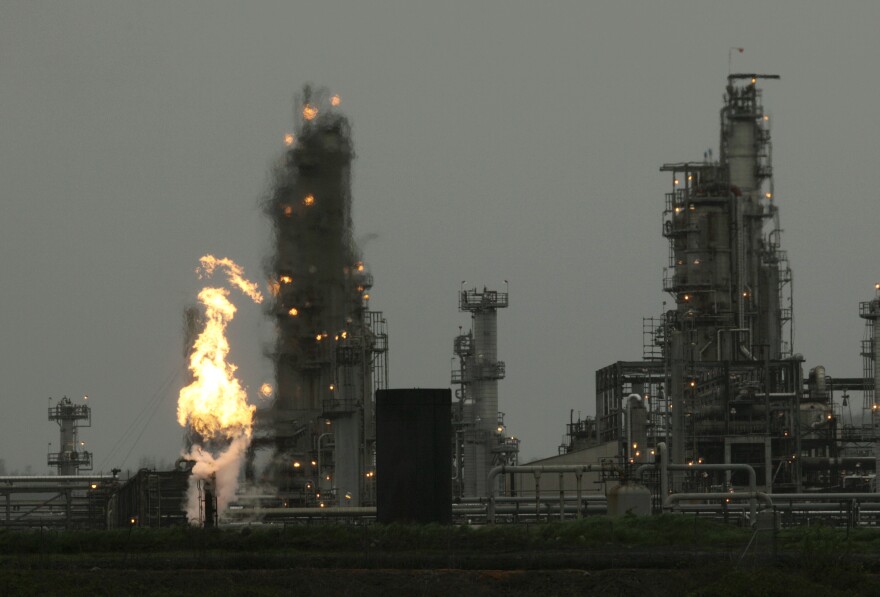Washingtonians are parsing the state budget passed last week by a divided legislature. It adds $1.8 billion for basic education over the next two years. A big chunk of that comes from the closure of a so-called “extractive fuel” loophole, which is one of several new policies that many environmentally progressive groups like.
Eric de Place, an energy and climate policy analyst at the Seattle-based Sightline Institute, says from his perspective, the new state budget is mostly good news.
“I think on net, the budget was a win for the environment and a win for the climate,” de Place said.
'Extractive Fuel Loophole' Closed
Topping the list of positives is the closure of a decades-old tax loophole that had benefited oil refineries.
“It was a tax loophole that was originally designed to benefit timber mills,” de Place said. “Oil industry came into the state later on and exploited that tax loophole to take 98 percent of the benefit.”
Sightline calculates that the closure of the loophole will bring in about $52 million for Washington schools.
Solar Power ‘Cliff’ Averted
Another positive is that incentives for consumers to invest in solar power aren’t ending abruptly as feared.
Instead a new statewide pool of up to $110 million dollars is available to support residential, commercial, utility-scale and community solar projects, at lower rates. The new program can be tapped to recoup solar startup expenses for up to eight years or until 50 percent of project cost is reached, whichever comes first.
Other New Taxes
The budget includes revenue from a new sales tax on bottled water.
The budget also requires out-of-state online retailers to collect and remit sales tax from customers in Washington state.
The Associated Press reports the total revenue from these new taxes and the closure of the extractive fuel loophole amounts to $456 million over the next two years.
Lack Of Carbon Tax Sparking New Ballot Initiative
But the new budget does not put a price on already capped carbon emissions, which many clean energy boosters say is a miss.
The nonprofit Carbon Washington is gearing up to put another statewide carbon tax initiative before voters in 2018.







